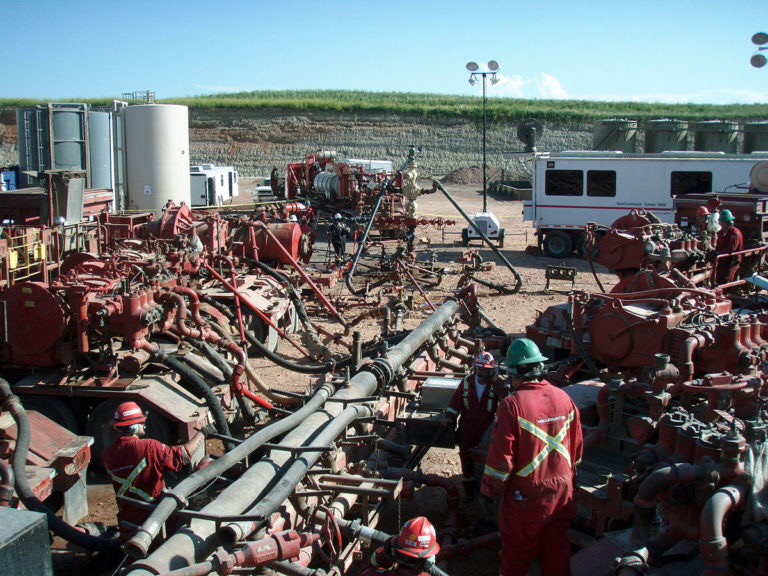
Fracking creates noise at levels high enough to harm the health of people living nearby, according to the first peer-reviewed study to analyze the potential public health impacts of ambient noise related to fracking.
Environmental noise is a well-documented public health hazard. Many large-scale epidemiological studies have linked noise to adverse health outcomes including diabetes, depression, birth complications and cognitive impairment in children. Noise exposure, like other health threats, may disproportionately impact vulnerable populations such as children, the elderly and people with chronic illnesses. High-decibel sounds are not the only culprits; low-level sustained noises can disturb sleep and concentration and cause stress.
“Oil and gas operations produce a complex symphony of noise types, including intermittent and continuous sounds and varying intensities,” said study author Seth Shonkoff, a visiting scholar in the Department of Environmental Science, Policy and Management, an affiliate at Lawrence Berkeley National Laboratory and executive director of PSE Healthy Energy. For example, compressor stations produce a low rumble; drilling a horizontal well is a loud process that can take four to five weeks 24 hours per day to complete; and using large volumes of water at high pressure results in pump- and fluid-handling noise.
The study was published in December in the journal Science of the Total Environment.
To understand whether noise from fracking might impact the health of surrounding communities, researchers gathered all available data and measurements of noise levels at oil and gas operations and compared the information to established health-based standards from the World Health Organization and other groups. They found that noise from fracking operations may contribute to adverse health outcomes in three categories, including anxiety, sleep disturbance and cardiovascular disease or other conditions that are negatively impacted by stress.
Source: Berkeley News
